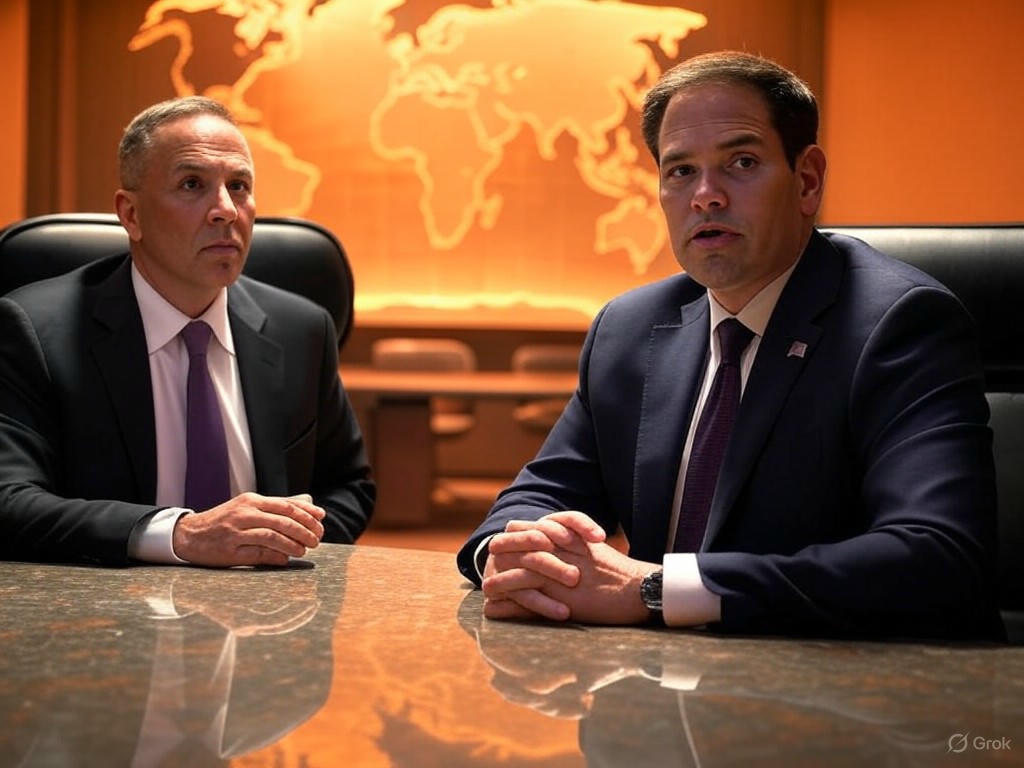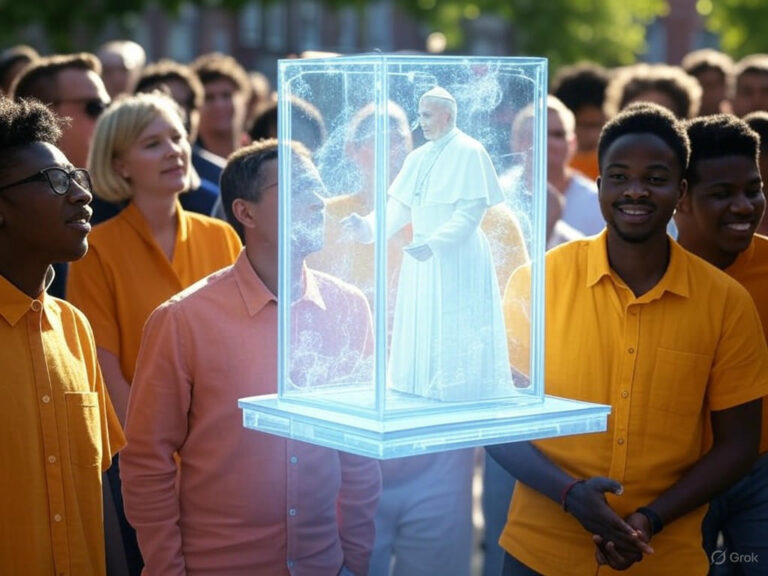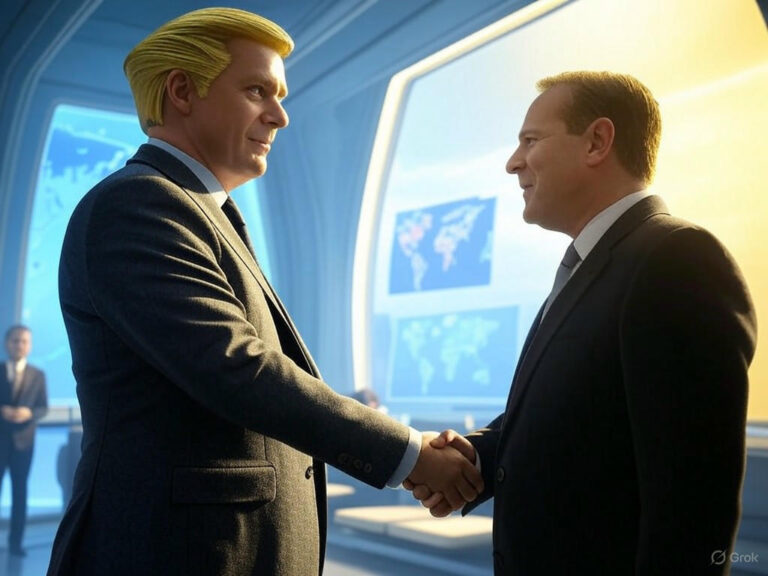
Trump Latest Appointments: Waltz for UN, Rubio as Security Head
The Latest Trump Administration Reshuffle: Key Moves in Foreign Policy
It’s no secret that political shake-ups can redefine how a government operates, and that’s exactly what’s happening now with the Trump administration reshuffle. President Donald Trump has made bold changes, nominating Mike Waltz as the United States Ambassador to the United Nations while handing Secretary of State Marco Rubio the interim role of national security adviser. This strategic pivot, announced on a bustling Thursday evening, reflects Trump’s ongoing efforts to align his team with his vision for America’s global stance.
Have you ever wondered how a single decision can ripple through the halls of power? In this case, Waltz’s move from his White House post comes amid scrutiny, while Rubio’s expanding duties highlight a concentration of influence that’s drawing eyes from all corners. As we unpack this Trump administration reshuffle, it’s clear these appointments could steer U.S. foreign policy in new directions.
Mike Waltz’s Shift from White House to Global Diplomacy
President Trump’s announcement of Mike Waltz’s nomination via Truth Social spotlighted a veteran with a rich background in national security. At 51, Waltz is stepping away from his role as national security adviser, a position central to the Trump administration reshuffle, to take on the UN ambassador spot. Trump’s praise was straightforward: Waltz has always prioritized America’s interests, from his days in uniform to his time in Congress.
But this transition isn’t without its shadows. Waltz faced backlash earlier this year over a leaked Signal chat that exposed sensitive discussions about military actions in Yemen. Imagine the pressure—mistakenly including a journalist in high-stakes talks could shake anyone’s confidence. Despite initial support from Trump, who called it a learning moment, the incident seems to have paved the way for Waltz’s reassignment. What does this mean for his future influence? It positions him as a key voice on the world stage, yet further from the daily White House decisions.
A Pattern in the Trump Administration Reshuffle
Waltz isn’t the first to see a nomination shift in this administration. Trump’s earlier pick, Elise Stefanik, had her UN ambassador nomination pulled back in March 2025 to avoid risking her congressional seat. This echoes a broader pattern in the Trump administration reshuffle, where changes like Matt Gaetz’s withdrawal from attorney general consideration have become the norm.
These moves raise questions about stability—how often can a team pivot before it affects long-term strategy? For now, Waltz’s experience could bring a fresh, assertive edge to UN discussions, but his confirmation hearings might probe deeper into past controversies.
Marco Rubio’s Growing Influence in the Trump Cabinet
Meanwhile, Marco Rubio is emerging as a powerhouse in the Trump administration reshuffle. As Secretary of State, he’s now taking on the interim national security adviser role, alongside responsibilities at USAID and as acting archivist. That’s four major hats for one person—talk about a heavy load!
Trump’s trust in Rubio echoes historical moments, like when Richard Nixon appointed Henry Kissinger to dual roles. If you’re following global affairs, you might see how this could streamline U.S. policy, making decisions faster and more cohesive. Rubio himself expressed gratitude for the opportunity, emphasizing his commitment to leading with strength.
Historical Echoes in the Trump Administration Reshuffle
Dual roles aren’t new, but in the context of the Trump administration reshuffle, they pack extra weight. Experts point to potential benefits, like unified foreign policy approaches, but also risks, such as overwork or power imbalances. Think about it: When one person holds so much sway, does it foster innovation or create blind spots?
For Rubio, this is a chance to shape America’s international narrative, from trade deals to conflict resolution. It’s a reminder that effective leadership often means adapting quickly, a lesson any professional could apply in their career.
Broader Changes in the National Security Council
The Trump administration reshuffle extends beyond Waltz and Rubio, touching the National Security Council with departures like Alex Wong’s. Set for early May, these changes signal a reevaluation of key players under Chief of Staff Susie Wiles’ guidance. It’s like reshuffling a deck mid-game—every move counts.
Context of Ongoing Personnel Shifts
This wave of adjustments follows criticisms, such as Senator Cory Booker’s concerns about cuts in election security and Defense Department staff. Booker highlighted the risks of losing experienced voices, asking, “How do we stay safe without those seasoned advisors?” His comments underscore the stakes in the Trump administration reshuffle, where experience could be the difference in preventing conflicts.
In a world of rapid changes, maintaining a strong team is crucial. If you’re in a leadership role, consider how regular evaluations can keep your group sharp and responsive.
Potential Impacts on U.S. Foreign Policy
As the Trump administration reshuffle unfolds, its effects on foreign policy are hard to ignore. Waltz at the UN will advocate for U.S. interests on issues like global security, drawing from his congressional and advisory experience. Rubio’s multifaceted role, however, might accelerate policy execution, blending strategy with diplomacy.
Experts are watching closely—could this lead to more assertive U.S. positions against rivals like China or Russia? For everyday folks, it’s worth pondering: How do these shifts influence international alliances and your daily life, from trade to travel?
Reactions and Expert Insights
Waltz shared his enthusiasm on social media, viewing this as continued service despite the change. Analysts suggest the Trump administration reshuffle is a smart way to reposition talent, perhaps mitigating Waltz’s earlier missteps while keeping Rubio at the forefront.
Reactions vary—some see it as a strengthening move, others as a risk. What are your thoughts on balancing loyalty and capability in high-stakes environments?
Looking Ahead: What’s Next?
Waltz’s nomination needs Senate approval, which could involve intense scrutiny given his history. Rubio’s interim position might evolve into something more permanent, much like historical precedents. In the midst of global tensions, from the Middle East to Asia, this Trump administration reshuffle could define how the U.S. responds.
If you’re interested in politics, keep an eye on these developments—they often set the stage for broader changes. Perhaps use this as a tip: Stay informed by following reliable sources and engaging in discussions.
Wrapping Up the Changes
In summary, the Trump administration reshuffle with Waltz and Rubio at the helm marks a pivotal moment. It blends opportunity with challenges, potentially streamlining U.S. strategies while addressing internal dynamics. As these roles settle in, their real impact will emerge.
We’ve covered the key angles, but I’d love to hear from you—what do you think this means for America’s global role? Share your insights in the comments, explore more on our site, or spread the word to keep the conversation going.
References
1. Politico. “Mike Waltz to be nominated as UN ambassador.” Link
2. CBS News. “Trump’s national security adviser Mike Waltz and Alex Wong expected to depart.” Link
3. People. “Trump appoints Mike Waltz as UN ambassador.” Link
4. Fox News. “Trump nominates Waltz for UN role after ousting him.” Link
5. Wikipedia. “List of ambassadors nominated by Donald Trump.” Link
6. People. “Marco Rubio takes on four roles in Trump administration.” Link
7. Rev. “Cory Booker historic Senate speech transcript.” Link
8. ABC News. “Michael Waltz expected to depart as Trump’s national security adviser.” Link
Trump administration reshuffle, Mike Waltz, UN ambassador, Marco Rubio, national security adviser, Trump cabinet changes, foreign policy shifts, White House appointments, U.S. diplomacy, presidential reshuffles







